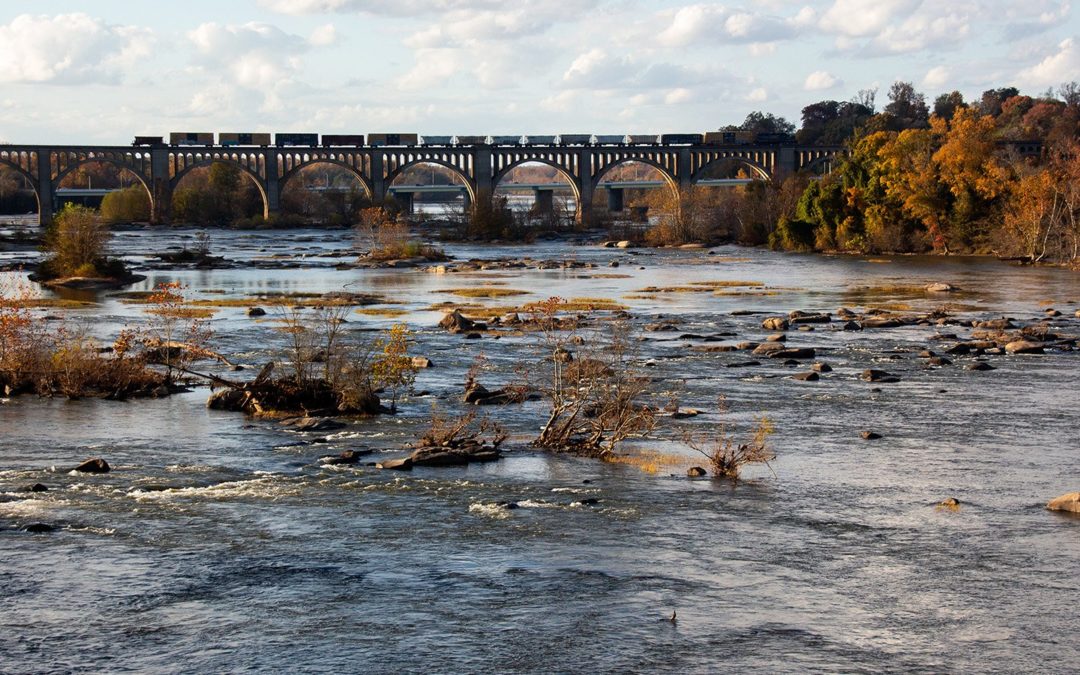
by Cassandra Carmichael | Nov 1, 2022 | Commentary, Headline News, Social Justice |
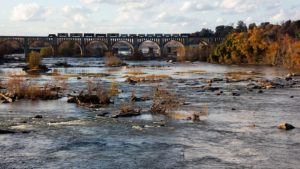
(RNS) — Water is both sacred and the cradle of life. It connects us to one another. We all have relationships with bodies of water, whether that be with the Chesapeake Bay, the Atlantic Ocean, a local creek, wetland or river or a nearby lake. These places are vital to our health and wellbeing but also help us spiritually connect.
As we celebrate the 50th anniversary of the Clean Water Act — legislation that helped clean up waterways across the nation — we must use all the tools available to ensure clean water is available in all our communities. Ensuring clean water often means properly stewarding upstream waters and wetlands. With more than 117 million people in the U.S. receiving their drinking water from public systems fed in whole or in part by intermittent, headwater, and ephemeral streams, protecting these waters is paramount.
The Clean Water Rule, which the Environmental Protection Agency put in place to designate which waterways were protected under the Clean Water Act, helps ensure safe drinking water for communities. The Clean Water Rule protects nearly one-third of all Americans’ drinking water from pollution.
Despite the reality that water is not bound to particular waterways but is connected, the U.S. Supreme Court recently heard arguments in a case that could change which waters are protected under the Clean Water Rule and eliminate certain wetlands and waters from protection. This would have severe repercussions to clean drinking water in Virginia and across the U.S.
In Virginia, we have a lot of water to protect: 249,000 miles of streams, 322,000 acres of lakes, 1,600 springs, and approximately 1 million acres of wetlands that provide flood protection, pollution filtration and essential wildlife habitat. For a state that values its lakes, streams and waterways, as well as public health, a robust Clean Water Rule is crucial.
Clean water is not a luxury. Clean water is integral to all human communities and the rest of the Earth. Which is why it makes common sense to ensure our common good through clean water protections. While clean water isn’t a partisan issue, it is a faith issue. Water is central to many faith traditions and most sacred ceremonies: washing, baptism, forgiveness. Religious traditions across the spectrum attend to justice and urge us to properly steward the Earth. In addition to our call to be faithful stewards of the Earth, our faith traditions teach us to care for vulnerable populations, including communities of color and low-income communities.
Regional studies and stories from across the country document the water struggles of these communities and demonstrate that there is much progress to be made before water justice is achieved in the United States. There are numerous instances where these communities are disproportionately burdened by water degradation, ranging from lack of clean drinking water to higher exposure to fish contamination.
The removal of clean water protections for wetlands, such as the Supreme Court is considering in Sackett v. Environmental Protection Agency, leaves too much to chance. Specifically, it puts more than 117 million people at risk for pollution and would be highly detrimental to wildlife.
Protecting clean water is a moral call. The Clean Water Rule helps us, as a country, protect one of the most important elements of creation: clean water. We have a duty to care for these essential, life-giving waters.
(Cassandra Carmichael is the executive director of National Religious Partnership for the Environment. The views expressed in this commentary do not necessarily reflect those of Religion News Service.)
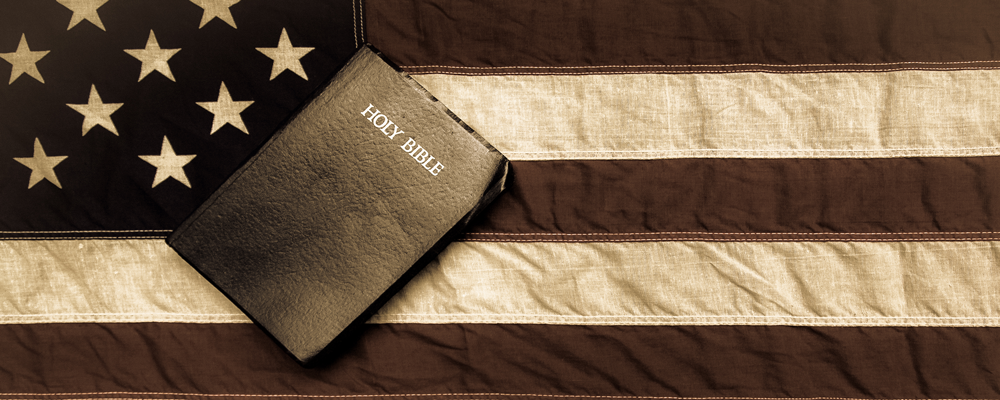
by Edward Ford Jr. | Oct 18, 2022 | Commentary, Headline News, Social Justice |
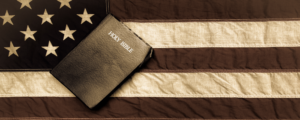
As a Christian, you may ask yourself at times how to live out your faith in the public sphere. Injustices are occurring in the world around us every day. Because your faith doesn’t allow you to ignore these happenings, you feel a strong desire from within to take productive action. Some people choose to take harmful action but your desire is to take action that heals, that works towards justice and that shows God’s love for humanity. This is what we should aim to do, and my goal is to help you begin to think of ways you can live out your faith while having a positive impact on the world around you.
We are called to live out our faith and have an impact on society. A verse in the scriptures that reiterates this calling is Micah 6:8, which says “He has told you, O man, what is good; and what does the Lord require of you but to do justice, and to love kindness, and to walk humbly with your God?” In this verse Micah points out what God requires of us. We are to do Justice. How are we “to do Justice”? What does that mean for us? Justice comes in different forms. We can do Justice by lending help to the parent who is struggling to put food on the table and is earning just enough to put a roof over their children’s heads. We can lend our help by offering to buy them groceries, maybe filling up their car with gas or connecting them to resources that can give them financial assistance and build their credit. We can do justice by assisting the homeless in our community to find shelter and get them connected to resources that will supply them with food and daily necessities. We can do justice by giving our time, talent and treasure to community organizations that give back to youth, those who are less fortunate and those who are struggling to make it each day.

These are some ways we can do justice on an individual basis. To those who already do such acts regularly, I commend you. Continue this good work. However, there’s also a need for justice on a systemic level within our society. As Christians, we are to follow the example of Christ, and stand beside those who are looked down on and mistreated by society. We have the capability to do justice on a systemic level by advocating for changes within our systems. We should advocate for opportunities for disadvantaged youth. Whether that be through mentorship programs, academic tutoring, pouring more resources into historically underfunded schools and giving families more choices as to where their child can attend. We should advocate for those who are battling unfair sentences in the justice system and creating opportunities for those who have paid their debt to society, in an effort to reduce recidivism rates. We should aim to provide more accessible opportunities for employment, educational opportunities, and programs for financial and civic literacy once they are released. More people should focus on advocating for those struggling with mental health issues and substance abuse. These are initiatives that would exhibit justice as Micah 6:8 led us to do.
Our participation in advocating for policy and systemic change in the public sphere is crucial. Many people believe their voice doesn’t matter, and as a result they don’t bother to vote or advocate for change. I can understand why many feel this way. However, inaction by good hearted people doesn’t get us further towards justice at all. Our government is supposed to be by and for the people. That means we the people of the United States have a voice and can move our government through civic engagement to reform laws and systems to deliver true justice. We can have a great impact especially on a local level. For example, after the terrible deaths of George Floyd and Breonna Taylor many cities across the country were pressed by citizens to take action against not only police brutality but racial injustice on a broad systemic level. That means in education, voting, criminal justice, and especially public health as the COVID-19 pandemic exposed the inequities in our health care system. With much to be addressed U.S. cities and state governments passed their own policies in an attempt to tackle racial injustice. In my home City of Middletown, CT where I am a member of the City Council, we decided to establish a Task Force on Anti-Racism. This Task Force was given the charge to find policy solutions to systemic racism wherever it exists under our jurisdiction. My colleagues and I received numerous emails from residents calling for change. The establishment of the Task Force was a response to residents’ call to action and would be the beginning of furthering justice within our own community. This is one example of how people can make a difference and move our government from stagnation and lip service to action and moving in the right direction. I encourage you to believe that your voice matters. Someone is waiting for you to stand up for the cause of justice.
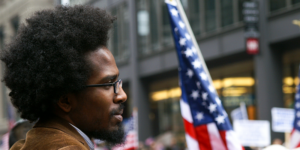
With myriad issues that need to be addressed it’s easy to feel overwhelmed. You don’t have to figure out how you will be an advocate for all of them. I encourage you to look at the example of Christ. He advocated for those who were hungry, sick, outcasts and shamed. He even advocated for you before you were born so that you may have life more abundantly. If you use your time and energy each day advocating for justice, you are advocating for those who are facing current circumstances as well as generations to come. Remember, to do justice is to take action that creates a society where everyone has the opportunities, tools and resources to fulfill their God-given potential. Justice can be restorative instead of further tearing individuals down.
I focused in the previous passages on how we “do justice.” However, those actions are to love kindness and walk humbly as well. When we reach out our hand to help and advocate for others who society would rather turn their backs on, we extend kindness. When we set aside our pride and consider the circumstances of others instead of solely focusing on our own, we begin to walk humbly. I challenge you to think about what issues in your community you can begin to advocate for that would further the cause of justice. What Town Hall meetings can you attend to advocate for justice? What issues can you write your Legislator or Mayor about? If you don’t know who these individuals are, I encourage you to research them. As you begin to walk in the requirements of Micah 6:8, you will be living out your faith in the public sphere.
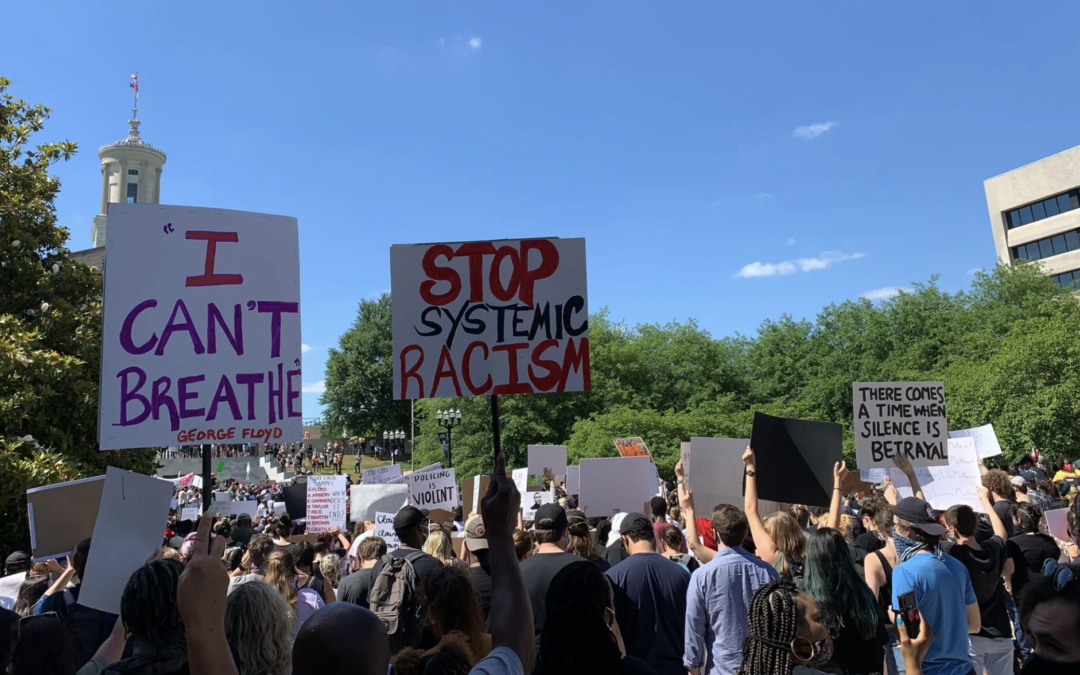
by Maina Mwaura, Urban Faith Contributing Writer | Jul 13, 2022 | Commentary, Headline News, Social Justice |
The unjust killings of African Americans at the hands of law enforcement over the past several years have become all too common news. But New York Times bestselling author Marc Lamont Hill and his co-author Todd Brewster masterfully weave together the strands of social justice uprisings, technology, and social media to talk about how the deaths of black people by police led to viral and physical social justice movements that have reshaped our national discourse.
UrbanFaith contributor Maina Mwaura spent a few moments with Marc Lamont Hill to discuss his the new book Seen & Unseen: Technology, Social Media & the Fight For Racial Justice. The full interview is above. More about the book is below.
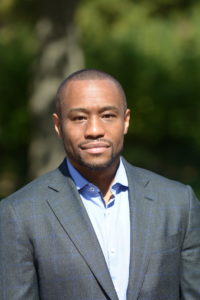 With his signature “clear and courageous” (Cornel West) voice Marc Lamont Hill and New York Times bestselling author Todd Brewster weave four recent pivotal moments in America’s racial divide into their disturbing historical context—starting with the killing of George Floyd—Seen and Unseen reveals the connections between our current news headlines and social media feeds and the country’s long struggle against racism.
With his signature “clear and courageous” (Cornel West) voice Marc Lamont Hill and New York Times bestselling author Todd Brewster weave four recent pivotal moments in America’s racial divide into their disturbing historical context—starting with the killing of George Floyd—Seen and Unseen reveals the connections between our current news headlines and social media feeds and the country’s long struggle against racism.
For most of American history, our media has reinforced and promoted racism. But with the immediacy of modern technology—the ubiquity of smartphones, social media, and the internet—that long history is now in flux. From the teenager who caught George Floyd’s killing on camera to the citizens who held prosecutors accountable for properly investigating the killing of Ahmaud Arbery, ordinary people are now able to reveal injustice in a more immediate way. As broad movements to overhaul policing, housing, and schooling gain new vitality, Seen and Unseen demonstrates that change starts with the raw evidence of those recording history on the front lines.
In the vein of The New Jim Crow and Caste, Seen and Unseen incisively explores what connects our moment to the history of race in America but also what makes today different from the civil rights movements of the past and what it will ultimately take to push social justice forward.
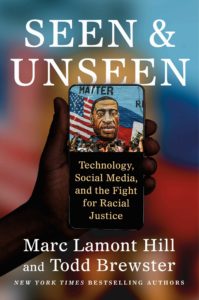
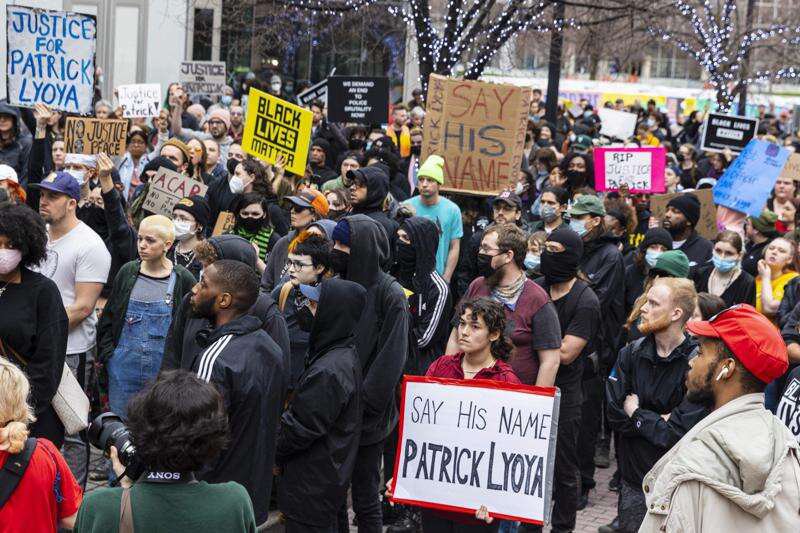
by Kathryn Post, RNS | Apr 21, 2022 | Commentary, Headline News, Social Justice |
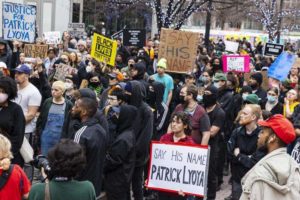
(RNS) — Pastors in Grand Rapids, Michigan, are taking action as the city reels in the aftermath of the fatal shooting of 26-year-old Patrick Lyoya by a Grand Rapids police officer on April 4. Video footage of the shooting was released on Wednesday (April 13), sparking protests outside the city’s police department.
Lyoya, who is Black, was pulled over last week for a mismatched license plate. Video footage shows a white officer shooting Lyoya in the head after a brief scuffle. Lyoya and his family arrived from the Democratic Republic of the Congo in 2014 as refugees, and he leaves behind his parents, two young daughters and five siblings.
In the days since Lyoya’s death, a group of Black pastors in Grand Rapids, called the Black Clergy Coalition, has been organizing community events to promote dialogue, healing and justice.
“We think that our faith perspective is critical in this hour, to not just discuss policy change, which is necessary, but to also discuss the spiritual and faith dynamic,” said Pastor Jathan K. Austin of Bethel Empowerment Church in Grand Rapids. “We must continue to keep our trust in the Father so that people don’t lose trust in this time because of the heartache, the pain.”
On Sunday (April 10), the group helped organize a forum for community discussion in response to Lyoya’s death. The discussion took place at Renaissance Church of God in Christ in Grand Rapids — the location was intentional, according to the church’s senior pastor, Bishop Dennis J. McMurray, who noted the wider church’s historic role in guiding civil rights movements and said the Black Clergy Coalition is drawing on that legacy.
“It was unreal, the level of cooperative dialogue and understanding that took place,” McMurray told Religion News Service. “If these conversations would have started almost anywhere else, the volatility that could be associated to something as devastating as what we’re facing could have been a bomb that goes off that would cause so many other issues.”
The group also helped host a Thursday press conference at the Renaissance Church of God in Christ and a noon Good Friday service at the church, where they took up a collection for the Lyoya family.
The Rev. Khary Bridgewater, who lives in Grand Rapids, said the city’s racial and religious landscape informs how local leaders are responding to Lyoya’s death. Grand Rapids has a population that’s over 65% white and about 18% Black. It’s also the headquarters for the Christian Reformed Church, a small, historically Dutch Reformed denomination, and is home to over 40 CRC churches. According to Bridgewater, leaders shaped by the CRC’s reformed theology are often more likely to advocate for change within existing systems.
According to Bridgewater, “It’s very hard for most CRC churches to look at a system and say, ‘This is wrong, we’re going to act as activists to push the system into a different state.’ They’re more inclined to say, ‘Hey, let’s sit down and have a conversation with the leaders and try to do things differently.’” Bridgewater says this theology can bump up against the Black church’s prophetic tradition of change-making. For this reason, he said, Christian groups in Grand Rapids need to have theological discussions around topics like justice and citizenship.
Nik Smith, a Grand Rapids activist and member of Defund the GRPD, agrees the city’s religious culture is shaping local leaders’ responses.
“The nonprofits are run by Christian folk who are just waiting for Jesus to come, not realizing not only was he here already, but he’s given us things to live by,” said Smith. “So we have to be seeking justice actively in our community. We can’t just say, let’s pray. Prayer is not going to bring Patrick back.”
Smith has been involved in Defund the GRPD since 2020, when the coalition first began advocating for reducing the police budget and refunding over-policed communities. Though Smith doesn’t identify as a Christian as strongly as she once did, she believes the Bible highlights the consequences of earthly authorities wielding too much power and the importance of working to make the world a better place. For Smith, defunding the Grand Rapids Police Department is part of securing a better future.
For years, the city’s police department has been criticized for racial profiling and for drawing guns on Black children. Joseph D. Jones, who is a city commissioner and pastor, told Religion News Service he wants to address police and community relations by looking at “root causes” of socio-economic inequality and other disparities while also addressing training for officers.
“I do believe in the absolute power of prayer,” Jones added. “I’m asking those who do pray … to pray for the family of Patrick, to pray for our city, to pray that angels are encamped around our city to protect our city and to pray that God restore and change the hearts of those who desire to engage in anything that is seen as evil in our country and our world,” Jones said.
Austin of Bethel Empowerment Church said the Black Clergy Coalition has long been advocating for police reform and specifically wants to see better diversity and culture training for officers and changes in how the department responds to police shootings.
“I am going to allow the wheels of justice to roll, and we pray that they roll properly,” said McMurray, who is also part of the coalition. “We are working, but we’re also watching.”
READ THIS STORY AT RELIGIONNEWS.COM



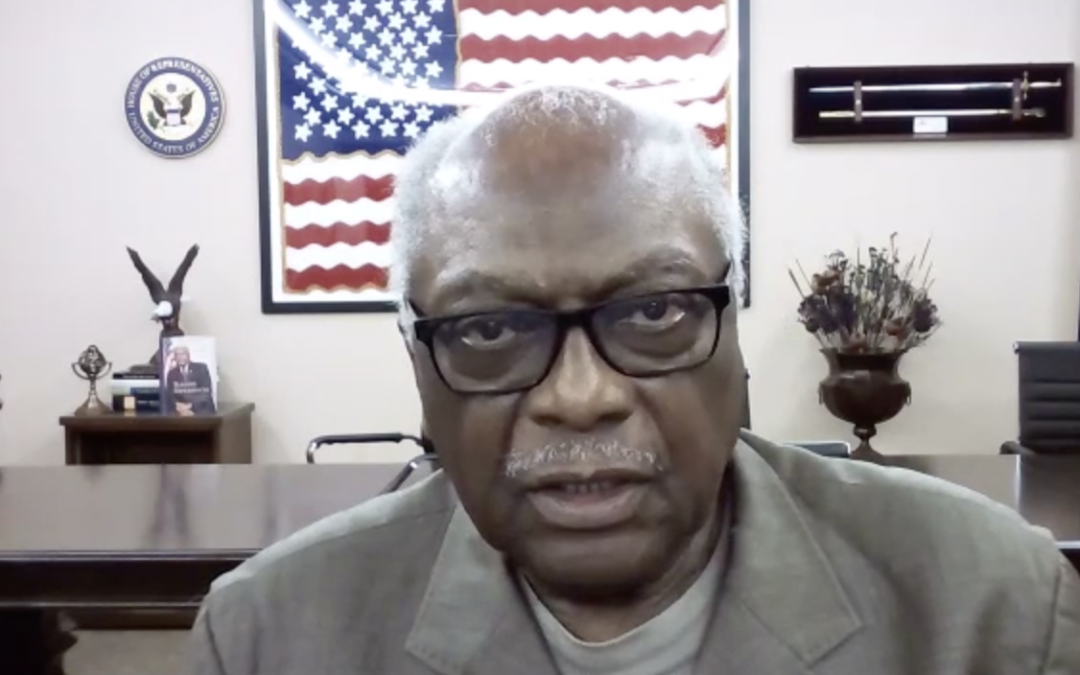





 With his signature “clear and courageous” (Cornel West) voice Marc Lamont Hill and New York Times bestselling author Todd Brewster weave four recent pivotal moments in America’s racial divide into their disturbing historical context—starting with the killing of George Floyd—Seen and Unseen reveals the connections between our current news headlines and social media feeds and the country’s long struggle against racism.
With his signature “clear and courageous” (Cornel West) voice Marc Lamont Hill and New York Times bestselling author Todd Brewster weave four recent pivotal moments in America’s racial divide into their disturbing historical context—starting with the killing of George Floyd—Seen and Unseen reveals the connections between our current news headlines and social media feeds and the country’s long struggle against racism.

